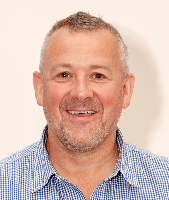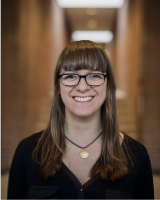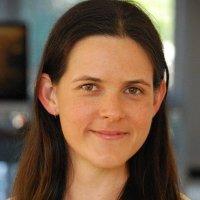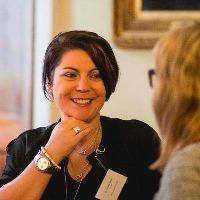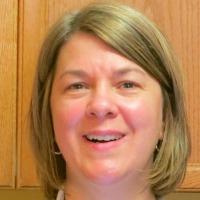Blog
Unless otherwise stated, content is shared under CC-BY-NC Licence
Archiving Scotland's Digital Historic Environment
I’ve been invited to share some initial thoughts and observations as the new Digital Archivist at Historic Environment Scotland (HES), a role I started in mid-August.
HES was formed in 2014 following the merger of two parent bodies Historic Scotland and the Royal Commission for the Ancient and Historical Monuments of Scotland (RCAHMS). It is the lead public body set up to investigate, care for and promote Scotland’s historic environment.
The power of PIDs: Using persistent identifiers to link research outputs in the Netherlands
Dr. Ricarda Braukmann is Program Leader Social Sciences at DANS
“404 Not Found” is very likely one of the most irritating error messages coming from your browser. While being annoying for any website, link rot is especially problematic for important digital resources such as scientific articles or datasets that are expected to be preserved and accessible over longer periods of time. Persistent identifiers (PIDs) have been developed to prevent this problem and to ensure that digital objects remain available and unchanged.
Enabling digital preservation through strategy, collaboration, and community
A lot has been going on since August 2017 when we wrote about our planning for a digital preservation ecosystem at the University of Melbourne.
Work continues on our ten-year digital preservation strategy – we are just over two-and-a-half years in now. The strategy continues to be a strong foundation that aids development of project work to eventually deliver all the elements required for ongoing digital preservation capability.
Storing AV Collections
Dave Heelas is the Archivist and Records Manager for Unilever Art, Archives & Records Management.
This post is the second in a series of three.
A second area that has been raising a lot of questions for digital preservation within Unilever’s collections is the Audio-Visual collections. As we have more and more digitised material it became a priority to move these from the external storage they were on into a more managed and protected environment in the form of the digital preservation repository.
In this short blog I will focus on the digitised AV collections within Unilever.
“Digital Archives in Communities – Practice and Preservation” : A Summary (or at least an attempt)
Sharon Webb is Lecturer in Digital Humanities at the University of Sussex Humanities Lab
Now that the dust has settled on our first 'Digital Archives in Communities – Practice and Preservation' workshop held in June this year, I finally have a chance to contemplate and reflect on the highlights, outcomes, tensions, challenges, and next steps of this project. Rather than go through the presentations and speakers in chronological order, I will instead try to summarise some of the themes and areas of coalescence that emerged.
Archivists, automation, data & content: scoping imaginative archiving at BBC Scotland
Charlie McCann is Archive Manager for BBC Scotland
Here at the cultural and current affairs coalface of BBC Scotland’s archives we’re getting used to a new position under the corporation’s Scottish commissioning wing and taking the opportunity to shift our gaze a little and do some more work to focus on the fruit of all our data preservation labours: our collections’ content. To be perfectly honest, it feels a little as if we’ve been neglecting “the content” of late, focussing so much as we do on “the data”- cleaning it, giving it a machine-readable makeover, digitising it into new formats and storage, figuring out new ways of sending it zooming around the globe at fantastical speeds and even building it a digital library to live in- generally working terribly hard to take very good care of all those zeros and ones. All of this has doubtlessly created new methods and means of security, stability and accessibility, but it has also raised a great many new questions and challenges for archivists. For example, has the tumultuous environment of the tech-driven approach to archiving caused us to lose something of our metaphysical understanding of our collections and in turn let our users and stakeholders down?
Designing a Program for Digital Preservation: Building the Momentum for Change
Faye Lemay is Digital Preservation Manager at Library and Archives Canada
The team at Library and Archives Canada have written a 4-part series for the blog. This is the first installment...
In the past three years, Library and Archives Canada (LAC) has intensified its efforts to improve its capabilities to preserve Canada’s documentary heritage. In a bid to step up its mandate to preserve and protect Canada’s digital holdings, the Digital Preservation (DP) team has forged a new path, converting what was once a series of short-term projects aimed at stabilizing the current infrastructure into building a strong foundation for an enduring and sustainable program. The main driver accelerating the momentum toward program development has been organizational support from the most senior levels of management at LAC, providing the impetus to set new directions for change.
Four Capabilities sought in Digital Archiving
Phil Clegg is Co-founder and Chief Technology Officer of MirrorWeb
We were recently invited to join the first episode of the Digital Preservation Futures webinar series by the DPC.
The webinar provided a valuable opportunity for us to learn more about the digital archiving community. We were also able to share what we have learned from projects we’ve worked on across the public and private sectors, as well as what our customers look for in a digital archiving and preservation solution.
In our experience, there are four key capabilities our customers seek from a digital archiving solution. In collaboration with our partners at TNA, we developed a set of procedures we call C.A.P.S:
On Hearing the Learn'd Astronomer
The last DPC staff meeting ended somewhat surprisingly with a number of late night poetry recitals. In honour of that unexpected turn I am going to start this post in the company of Walt Whitman:
The challenge of complex digital files
Dave Heelas is the Archivist and Records Manager for Unilever Art, Archives & Records Management
I have been in my role as an Archivist and Records Manager here at Unilever Art, Archives & Records Management (UAARM) for three months now, the focus of my role is to lead on the Digital and Audio Visual collections. We are taking stock of our current digital preservation practices and in order to determine what challenges we may encounter in the future and how we can develop our current approach to digital preservation.










































































































































